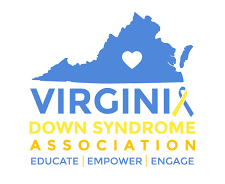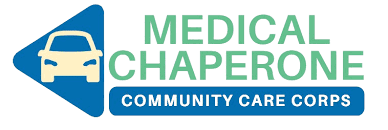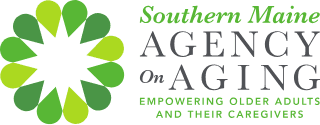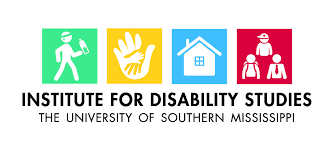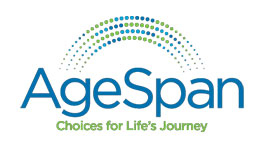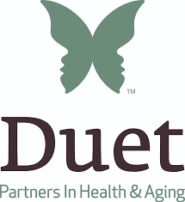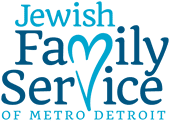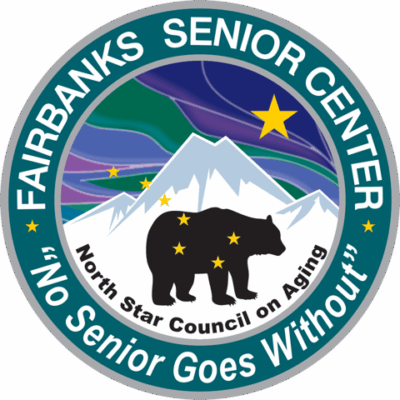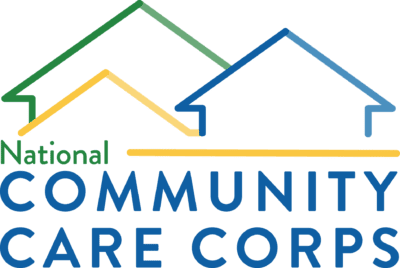
Community Care Corps (C3) empowers local organizations through grants to develop innovative volunteer programs that provide essential nonmedical support to family caregivers, older adults, and adults with disabilities. Administered by the Oasis Institute with support from USAging, Caregiver Action Network, and Altarum Institute—and funded by the U.S. Administration for Community Living—our grantees are driving change with services that help maintain independence and well-being. Learn more about the program and see all grant winners.
Featured Grantee of the Month
Jewish Family Service of Metro Detroit
West Bloomfield, Michigan
www.jfsdetroit.org
Caregivers of people with Alzheimer’s and dementia often face stress, limited respite options, and fragmented support. The Caring Connections Neighborhood Hub, from The Jewish Family Service of Metro Detroit, creates a dementia-friendly space for caregivers and their loved ones. It offers engaging activities for both individuals and caregivers to enjoy together, like the Memory Cafe, Dementia-Friendly Movies, Mind University, and Caregiver Support. It offers innovative solutions like Memory Café programming, respite services, and cognitive training. With the support of the Community Care Corps grant, the hub will expand its impact through volunteer-driven initiatives, including a caregiver advisory board, technology workshops, and reverse valet and way-finding services, to provide lasting, community-focused support for caregivers and their families.
2025-2026 Grantees
ALS Northwest
Portland, Oregon
www.alsnorthwest.org
The ALS Volunteer Program provides people living with amyotrophic lateral sclerosis (ALS) and their caregivers with robust support across the State of Oregon and Southwest Washington. We expect approximately 70 volunteers fulfill “Caregiver Mentor” and “Helping Hands” volunteer roles with increased group opportunities and a focus on volunteer recruitment and retention. The outcome is more families served with practical assistance and friendly companionship, fostering increased wellbeing among families facing ALS while saving them money, time and energy.
CaringMatters, Inc.
Baltimore, Maryland
www.caringmatters.org
CaringMatters supports vulnerable adults 60+ who have difficulty living independently because of a serious illness. Trained volunteers visit clients in their homes to provide companionship, shopping for essentials, light housekeeping; food preparation; respite care and connection to community resources. Caregivers of the home visited clients and other recruited family caregivers participate in volunteer-facilitated in person or virtual support groups and/or one-on-one volunteer mentoring by former caregivers. Door-to-door transportation ensures patients can receive medical care.
Virginia Down Syndrome Association
Richmond, Virginia
www.virginiadsa.org
The model proposed for this grant is through both model refinement as well as expansion of current programs and services our organization offers. Through the generous funding from the Community Care Corps, VDSA increases education and social wellness opportunities for individuals with Down syndrome ages eighteen and older; continues and expands social connections among caregivers and increases caregiver capabilities in caring for an individual with Down syndrome; and continues and expands respite programs across VDSA service areas.
Cooley Dickinson Hospital
Northampton, Massachusetts
www.cooleydickinson.org
Individuals living with dementia and their families face various challenges on their journey. Cooley Dickinson Hospital’s Pioneer Valley Memory Care Initiative (PVCMI) is established to provide in-home caregiver support, education and community connections to help people living with dementia and their caregivers meet these challenges. Thanks to funding from the Community Care Corps, its innovative volunteer program provides opportunities for families to connect with a volunteer trained in dementia care to reduce isolation and improve quality of life for individuals and caregivers, which research shows can slow dementia’s impact. PVMCI is expanding volunteer-based dementia support by outreaching to additional communities, organizations, and colleges across western Massachusetts to serve at least 150 people living with dementia and their caregivers, and 75 volunteers.
Chico State Enterprises – PASSAGES
Chico, California
www.passagescenter.org
PASSAGES Medical Chaperone Program provides support to older adults who are isolated, lonely and in need of transportation to medical appointments, the pharmacy and grocery store. The Medical Chaperone Program builds a network of screened and trained volunteer chaperones to accompany older adults and adults with disabilities to and from non-emergency medical appointments and outpatient procedures.
Volunteers complete a thorough background check, participate in the Healthy Ideas curriculum training, and receive continuous support from the PASSAGES staff. The goal of the Medical Chaperone Program, along with the other PASSAGES programs, is to provide the support services needed for older adults to continue living independently and remain healthy.
Southern Maine Agency on Aging
Biddeford, Maine
www.smaaa.org
Southern Maine Agency on Aging (SMAA) is the focal point in Cumberland and York counties for resources, services and information to empower older adults, adults with disabilities, and their caregivers to live to their fullest potential. SMAA’s Volunteer Respite Care Companion Pilot matches 30 trained/screened volunteers with 60 older adults who have difficulty living independently, and their family caregivers. In consistent, weekly visits, care recipients enjoy connections with a new friend; caregivers receive respite to improve their mental, emotional, physical, and financial health, and their ability to continue supporting their loved ones at home.
University of Southern Mississippi (Institute for Disability Studies)
Hattiesburg, Mississippi
www.usm.edu/ids/index.php
The Empowering Pathways to Independence (EPI) program, led by the Institute for Disability Studies (IDS) at The University of Southern Mississippi, provides employment and independent living skills training for individuals with disabilities ages 21-40 in Forrest and Lamar counties. Using innovative volunteers, including USM undergraduate and graduate students and community members with disabilities, the program offers personalized, hands-on support through in-person and virtual services. Training covers resume building, job applications, financial literacy, self-advocacy, and workplace professionalism, as well as daily living skills like budgeting and transportation. By fostering independence and professional growth, EPI enhances participants’ confidence, employability, and community engagement, creating lasting, meaningful change in their lives.
AgeSpan, Inc.
Danvers, Massachusetts
www.agespan.org
AgeSpan develops a model to recruit and train former consumers as volunteers to increase capacity, including Spanish language capacity, in the Family Caregiver Support Program (FCSP). The FCSP provides support groups and other assistance to caregivers, acknowledging both the impact they make in the lives of their loved ones, and the toll that this role can take on their own well-being. Our pilot trains and uses 10-15 new volunteers to extend the reach, responsiveness, and impact of the FCSP.
Duet: Partners In Health & Aging
Phoenix, Arizona
www.duetaz.org
Duet: Partners In Health & Aging, in collaboration with Novle, is implementing a community-driven engagement model to expand the availability of critical support services for our full community of family caregivers, kinship caregivers, and homebound adults in Maricopa County. This initiative enhances volunteer recruitment efforts to increase assistance with respite care, mentoring, transportation and other services. By integrating community insights and expertise, Duet is fostering a sustainable, service-focused approach that ensures individuals across the community can connect with essential resources. The model emphasizes relevant, practical solutions that support family caregivers and older adults in maintaining their independence and well-being, ensuring no one is left without the needed vital assistance.
Jewish Family Service of Metro Detroit
West Bloomfield, Michigan
www.jfsdetroit.org
Caregivers of people with Alzheimer’s and dementia often face stress, limited respite options, and fragmented support. The Mindful Connections Neighborhood Hub, based at The J in Metro Detroit, is a pilot launching in February 2025 to create a dementia-friendly space for caregivers and their loved ones. It offers innovative solutions like Memory Café programming, respite services, and cognitive training. With the support of the Community Care Corps grant, the hub will expand its impact through volunteer-driven initiatives, including a caregiver advisory board, technology workshops, and reverse valet and way-finding services, to provide lasting, community-focused support for caregivers and their families.
North Star Council on Aging
Fairbanks, Alaska
www.fairbanksseniorcenter.org
North Star Council on Aging (NSCoA) volunteers’ primary focus areas are Healthy Futures and Aging in Place. NSCoA serves as the sole agency in the region focused on helping seniors safely age in their community.
Strengthening the capacity of a volunteer program has four primary goals: provide respite to caregivers, strengthen volunteers’ impact with an aging population by providing wellness, informational and advocacy training, increase home chore service to aid in the “aging in place” movement, and network volunteers to increase transportation services for seniors. NSCoA believes it takes a village to care for an aging population, and we are proud to be part of the Community Care Corps effort to better our Alaskan Pioneers.
Somang Society
Cypress, California
www.somangsociety.org
Somang Society offers ‘Well Aging’ educational sessions, personalized care consultations, and recorded resources to older Korean American adults who are socially and economically disadvantaged. Our main targets are Korean American caregivers with limited English proficiency and those facing greater social challenges. The program’s goal is to increase caregivers’ knowledge, readiness, and confidence in their roles while enhancing older adults’ understanding and preparedness for independent living. Trained bilingual volunteers (40) and interns (10) lead interactive sessions with hands-on exercises, guiding participants in creating a personalized ‘Well Aging’ care plan. By overcoming cultural and language barriers, these services provide crucial resources and support to help older Korean American adults and their caregivers achieve independent aging and a better quality of life.



